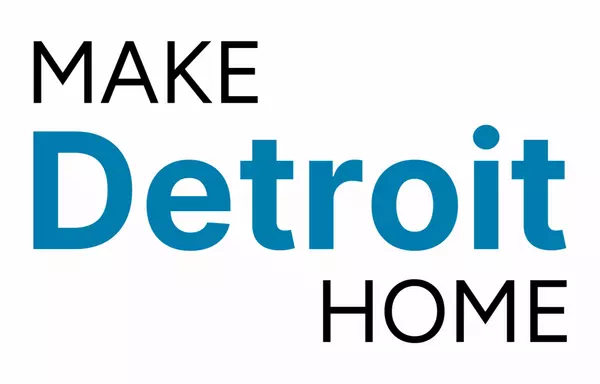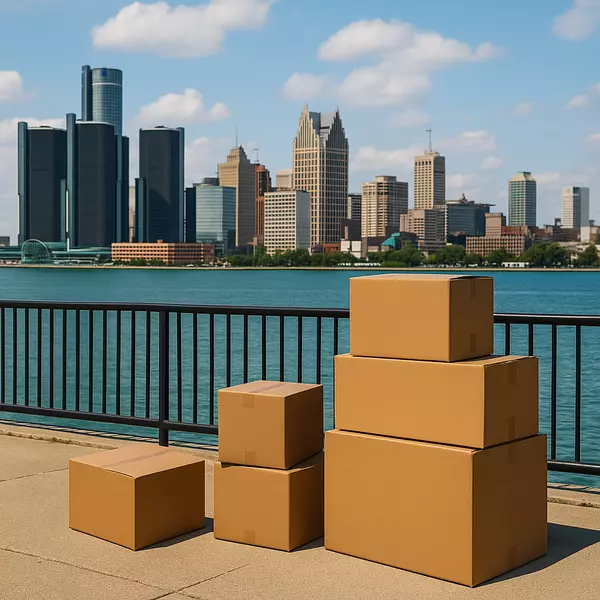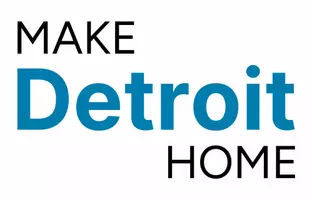What You Need to Know About Moving to Detroit in 2026
What You Need to Know About Moving to Detroit in 2026
Thinking about moving to Detroit in 2026? We love to hear it. Detroit isn’t a “comeback story” anymore—it’s a city that knows exactly who it is, where it’s going, and what kind of people help it thrive. If you’re exploring Detroit real estate, considering a relocation for work, or dreaming about building a life in Metro Detroit, you’re stepping into a city full of opportunity, creativity, and community.
Below is the real talk—what to expect, what to prepare for, and what people wish they’d known before moving to Detroit, Michigan.
Why Detroit Is One of the Most Interesting Places to Move in 2026
Detroit in 2026 has momentum you can feel. New businesses, new housing opportunities, and major investments across the city and Metro Detroit suburbs make this one of the Midwest’s most appealing relocation destinations.
A Cost of Living That Still Makes Sense
Detroit’s cost of living remains one of the biggest draws for people moving from Chicago, New York, Atlanta, and high-cost coastal markets. Compared to other major cities, Detroit and Metro Detroit real estate still offer strong affordability and long-term value.
Whether you’re renting or buying, you’ll typically get more space, more character, and more financial breathing room than in similar-sized metros.
A Growing Job Market
Detroit’s job market in 2026 is broader than ever. The city continues to evolve beyond traditional automotive work into electric vehicle innovation, tech, mobility, health care, logistics, education, and creative industries.
If you’re relocating for work or starting a business in Michigan, Detroit offers a growing ecosystem with plenty of room to build.
A Culture-Driven City With Its Own Rhythm
Detroit doesn’t do “cookie-cutter.” It does authenticity.
Art, music, food, block clubs, festivals, neighborhood pride — if you want to be part of a city with real identity and real community energy, Detroit is the place.
What the Detroit Housing Market Looks Like in 2026
This is where we step in as Make Detroit Home—offering honest, transparent guidance that blends data with local lived experience.
Buying a Home in Detroit or Metro Detroit
Homebuyers moving to Detroit will find a wide range of options: historic homes, modern builds, lofts, two-flats, and suburban homes throughout Oakland, Wayne, and Macomb counties.
Key things to know about buying real estate in 2026:
-
Detroit home prices are rising steadily, not wildly.
-
Neighborhood appreciation varies — data matters.
-
Renovation opportunities exist but require realistic budgeting.
-
Property taxes differ significantly by city and township.
-
Working with a Detroit-focused real estate agent protects your investment.
Renting in Detroit
Renting is a smart way to explore the city before choosing where to buy. Many people relocating to Detroit spend a year getting familiar with neighborhoods like Midtown, Corktown, New Center, West Village, and the Detroit riverfront before committing.
Choosing the Right Detroit Neighborhood
Detroit is 139 square miles — each area with its own architectural charm, community identity, and lifestyle benefits. Metro Detroit suburbs add even more options depending on your commute, budget, and goals.
Popular Detroit Neighborhoods (Fair Housing–Friendly Overview)
-
Downtown & Midtown — walkable amenities, arts, food, culture
-
Corktown — historic character and restaurants
-
East Riverfront — growing residential development with waterfront access
-
Grandmont Rosedale — strong community organizations
-
West Village & Islandview — creative energy and local businesses
-
Palmer Park — access to green space and classic Detroit architecture
Popular Metro Detroit Suburbs
For those exploring suburban real estate near Detroit, cities like Ferndale, Royal Oak, Dearborn, Southfield, Oak Park, and Grosse Pointe are often on the list. Each suburb offers different conveniences, commutes, housing styles, and price points.
What Daily Life in Detroit Is Actually Like
Transportation
If you’re relocating from a city with extensive transit, expect a more car-forward lifestyle — but not necessarily a car-dependent one. Detroit’s walkable neighborhoods, QLINE route, bike paths, and improving mobility systems make it more flexible than outsiders expect.
Weather
Detroit’s four seasons are part of its personality. Winters ask for a good coat; summers reward you with sunsets over the river that make you believe in magic again.
Community
Detroit is one of the most community-driven cities in the country.
Block clubs, small businesses, mutual aid groups, and neighborhood associations shape daily life. If you participate, you’ll find connection quickly.
How to Prepare for Your Move to Detroit in 2026
1. Start With What You Value
Space? Walkability? Architecture? Commute time? Affordability? Creative energy?
Your values shape your neighborhood options across Detroit and Metro Detroit.
2. Get the Real Data
We walk clients through:
-
Detroit housing market trends
-
Metro Detroit price differences
-
Neighborhood-level insights
-
Renovation realities
-
Financing options for Michigan homebuyers
3. Tour With Intention
Virtual or in-person tours help you compare Detroit neighborhoods and understand not just the house, but the context around it.
4. Build Your Detroit Network Early
From inspectors and contractors to lenders and small business owners, we connect you with trusted local partners.
Why Make Detroit Home Should Be Your First Call
We’re not just real estate agents.
We’re guides, community members, storytellers, and data nerds—here to help you make a move that’s honest, informed, and aligned with your life goals.
If Detroit is calling you in 2026, we’d love to help you show up prepared, confident, and connected.
Categories
Recent Posts









